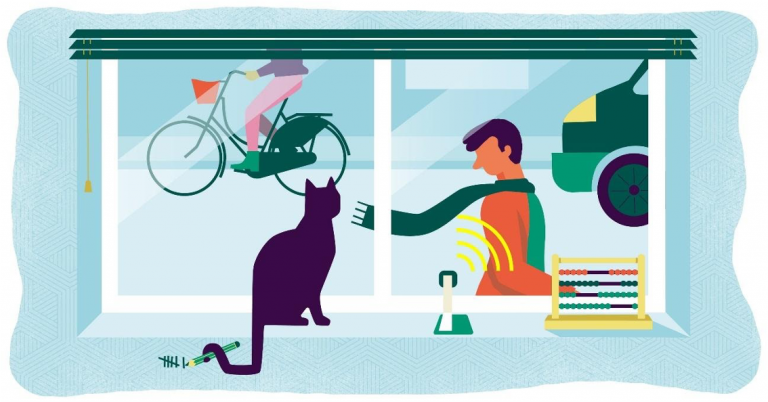Cities currently account for only 1% of the earth’s surface. However, they also account for half of the world’s population, 67% of the global primary energy demand, and 71% of the global energy-related CO2 emissions. Road transport and citizens’ behaviour is the root cause of a variety of societal problems ranging from road safety, air and noise pollution, urban health issues to the liveability of our communities. Particularly urban and suburban areas suffer from these adverse effects, and areas exposed to high road traffic volumes go hand in hand with social deprivation.
Empowering citizens to tackle congestion in the Docklands
Obtaining reliable and updated traffic data is fundamental to understanding the complex links between our urban infrastructure, transport systems and people’s day-to-day practices. Traffic counts help authorities and scientists make sense of urban mobility and are instrumental to assess its impacts and consequently improve planning. However, while local authorities are under pressure to tackle the adverse effects of traffic, they rely on high cost, spatially and temporally restricted traffic counting techniques to gather data.
Project Objectives

As sensing technologies become more accessible to laypeople and citizens increasingly engage with participatory science projects there is a real opportunity to radically change the way traffic data is produced, analysed and used for scientific and policy outcomes in the field of mobility.
WeCount aims to empower citizens to take a leading role in the production of data, evidence and knowledge around mobility in their own neighbourhoods, and at street level. The project will follow participatory citizen science methods to co-create and use innovative low cost, automated, road traffic counting sensors (i.e. Telraam) and multi-stakeholder engagement mechanisms in 5 pilots in Madrid, Ljubljana, Dublin, Cardiff and Leuven.
The Dublin stream of the project will be focused in the Dublin Docklands and led by Francesco Pilla (Associate Professor in Smart Cities & Urban Environment at UCD) who lead the iSCAPE citizen science project. 200 traffic counting sensors and 40 air quality sensors will be deployed by residents, community organisation and business in the Docklands area.
Community workshops will be held in September with the aim to deploy the sensors for a 9-month period from October. We are delighted to be working with groups such as Ringsend College and the Ringsend & Irishtown Community Centre. If your community would like to participate contact Francesco.Pilla@ucd.ie to find out more.
Project Outcomes
- We will be able to quantify local road transport (cars, large vehicles, active travel modes and speed), produce scientific knowledge in the field of mobility and environmental pollution, and co-design informed solutions to tackle a variety of road transport challenges.
- Provide cost-effective data for local authorities, at a far greater temporal and spatial scale than what would be possible in classic traffic counting campaigns, thereby opening up new opportunities for transportation policy making and research.
- Empower citizens to develop evidence-led interventions into the political discourse on civic and environmental issues. By putting citizens at the heart of the innovation process, the project seeks to overcome existing technological and societal silos so that citizens can champion a new perspective on road transport that take into account their own concerns in pursuit of better quality of life and more equitable, healthy futures.
Find more information here:
Contact Francesco.Pilla@ucd.ie
https://cordis.europa.eu/project/id/872743
https://telraam.zendesk.com/hc/en-us/articles/360022563532-Criteria-for-counting-using-Telraam
